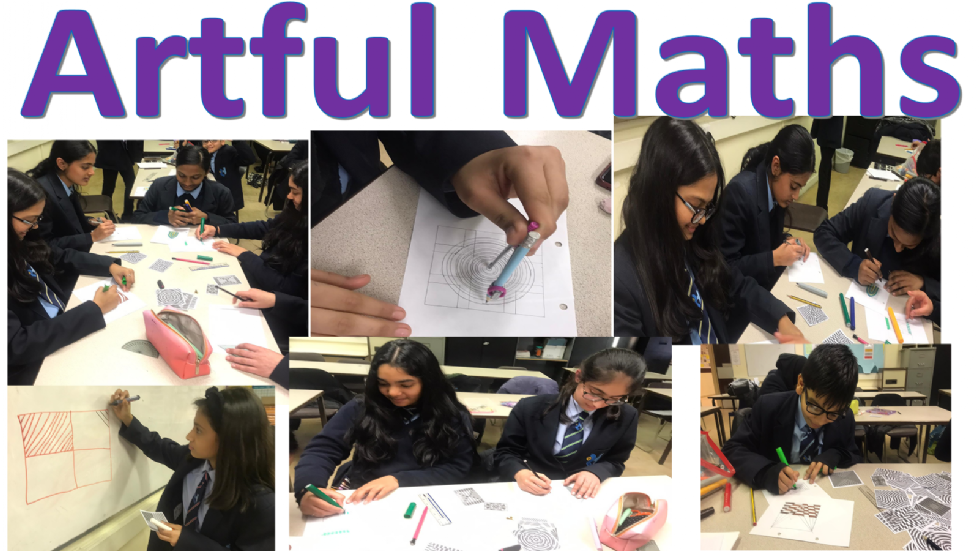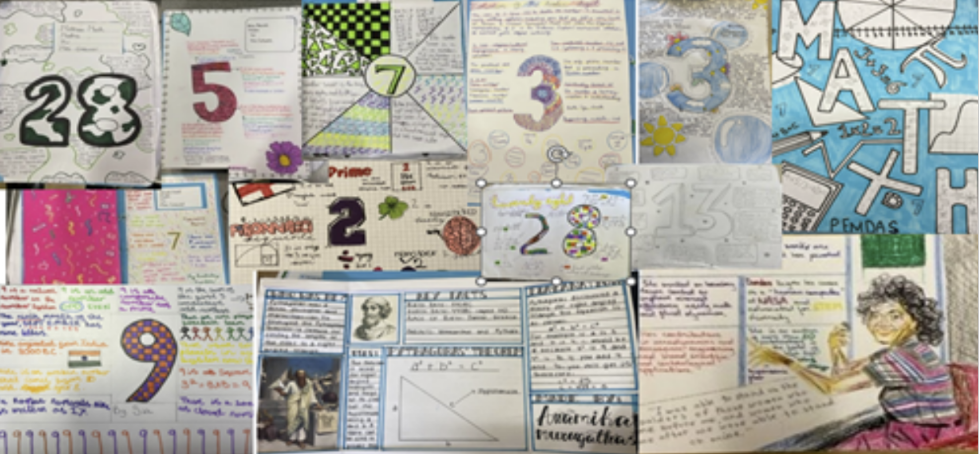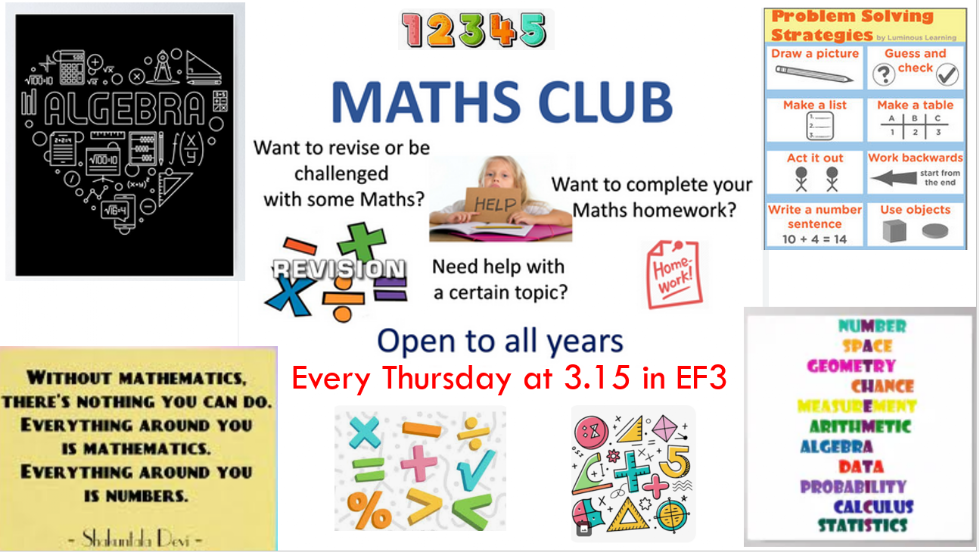Mathematics
Mathematics Curriculum
At Key Stage 3, our Mathematics curriculum is designed with a Mastery Scheme of Work that focusses on developing students' fundamental mathematical skills. This approach focusses on learning in depth, allowing students to fully grasp the foundational concepts before moving on to more complex topics. By ensuring mastery of essential skills, we aim to build confidence and competence in Mathematics at all levels.
What is Mastery in Mathematics?
Mastery in Mathematics means that students don’t just memorise procedures or formulas but develop a thorough understanding of how and why mathematical concepts work. They are encouraged to make connections between different areas of Mathematics and to approach problems with a sense of curiosity and persistence. This approach allows students to progress at their own pace, ensuring no one is left behind.
Key Principles of Mastery in Mathematics:
-
Focus on Understanding: We prioritise helping students fully understand concepts, not just memorise them. Mastery focusses on ensuring that each student can apply their knowledge flexibly in different contexts.
-
Deep Learning: Students work on fewer topics, but in greater depth. This enables them to master each area before moving on to the next, building a strong mathematical foundation that will support future learning.
-
Spiral Learning: Concepts are revisited and extended over time to reinforce learning. By revisiting topics periodically, students can consolidate their knowledge and enhance their understanding of more complex concepts as they progress.
-
Problem Solving: Mastery encourages students to use their understanding of Mathematics to solve problems. They are provided with opportunities to tackle a variety of problems, from simple exercises to multistep challenges, building both their skills and confidence.
-
High Expectations for All: Every student is capable of mastering Mathematics, and our approach aims to support all learners in reaching their full potential. We provide opportunities for stretching and challenge while ensuring that support is available for those who need it.

Benefits of Mastery in Mathematics:
-
Confidence and Competence: Students gain confidence in their mathematical ability, knowing that they have mastered key concepts and can apply them to solve problems.
-
Stronger Problem-Solving Skills: With a deep understanding of mathematical principles, students are better equipped to approach and solve unfamiliar problems.
-
Long-Term Retention: By mastering topics before moving on, students are more likely to retain and apply their knowledge over time, which is essential for success at GCSE and beyond.
In Key Stage 3, our Mastery approach ensures that students not only meet but exceed the expectations of the curriculum, laying a strong foundation for further study and future careers in Mathematics and related fields.

.
Our Curriculum:
Our curriculum covers key areas such as Number, Ratio & Proportion, Algebra, Geometry & Measures, and Statistics. We focus on key topics taught in greater depth, which form the basis of more complex mathematical knowledge. This ensures that our students build a strong understanding of the skills taught and are better equipped to tackle the more rigorous content of the GCSE curriculum. This approach encourages students to deepen their learning at all levels.
In Years 7 and 8, students are taught in mixed-ability classes, while in Year 9, they are placed into ability-based sets. To provide additional support for lower-attaining students, their class sizes are kept smaller, to enable more focused support. Throughout the key stage, we use topic tests and formal cumulative assessments to reinforce the importance of spiral learning and to help students improve their ability to recall and apply prior knowledge.
Our Mathematics Curriculum Aims to:
Develop Fluency
Students will consolidate their mathematical understanding from Key Stage 2 and extend their knowledge of the number system, including decimals, fractions, powers, and roots. They will learn to select and apply appropriate calculation strategies to solve increasingly complex problems. Algebra will be used to generalise arithmetic structures and formulate mathematical relationships. Students will also gain proficiency in using precise mathematical language and properties to analyse both 2-D and 3-D shapes, as well as statistical data.
Reason Mathematically
Students will make connections between numerical relationships, and their algebraic and graphical representations. They will deepen their understanding of ratio and proportion, particularly in the context of measures and geometry. Through this, they will learn to make and test conjectures about patterns and relationships, developing the ability to reason deductively across geometry, number, and algebra.
Solve Problems
Students will strengthen their mathematical skills by tackling problems, evaluating their solutions, and applying their knowledge to multi-step problems. They will begin to model real-world situations mathematically, expressing results using various mathematical representations. As they progress, students will select and apply appropriate concepts, methods, and techniques to unfamiliar and non-routine problems, preparing them for more advanced mathematical challenges.
UKMT Maths Challenge
Students in Years 7, 8, and 9 are entered each year for the UKMT (United Kingdom Mathematics Trust) Maths Challenge, a prestigious competition that challenges students to apply their mathematical skills in a fun and engaging way. Many of our students achieve Gold, Silver, and Bronze certificates, with some progressing to the next levels of challenge. The UKMT Maths Challenge helps students develop critical problem-solving skills, boosts their mathematical reasoning, and encourages a love of mathematics beyond the classroom. Participation also fosters resilience, teamwork, and the ability to tackle complex problems, all of which are valuable skills for their academic and future careers.
Extra Support for Students

